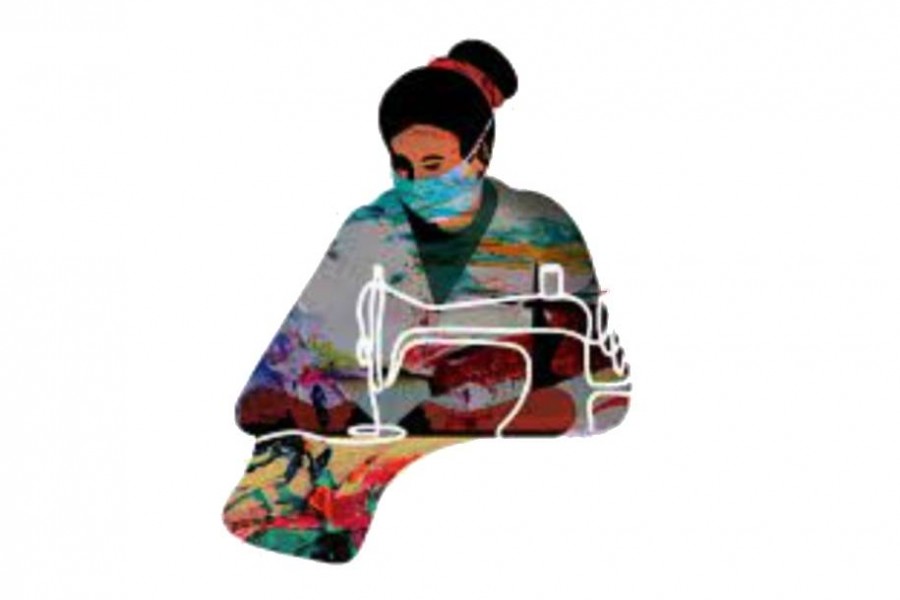
Published :
Updated :

The starting pay package of Tk 15,633 inclusive of an overtime incentive for garment workers from March 2022, meant financially better-off days for the factory hands. Given the increase in work hours and workdays, the wage hike was justified, as the managements had to meet commitments of timely shipment of their export products. It didn't take long for the RMG workers to realise the gap between their gross wage rise and the cost of running a family comfortably. A number of findings regarding the anomaly in the whole process of wage hike and the stark reality that followed were discussed at a dialogue held in Dhaka recently. The discourse was co-hosted by the Centre for Policy Dialogue, and the Christian Aid in Bangladesh at Brac Centre Inn in Dhaka.
With the dialogue remaining focused on the joint study on the workers' income rise in tandem with the addition of overtime, disillusionment was a foregone conclusion. Clearly, they deserve better wages. The study noticed that despite the monthly income of the RMG workers undergoing a 1.7 per cent rise from March 2022, their family expenses had gone up by 9.5 per cent. Apparently, against the wage hike the RMG workers now had to engage in a fresh struggle to weather the crisis. The joint study didn't fail to detect hardship on the part of workers in maintaining their families. This volatile situation had been prompted by the fact that a large chunk of their enhanced income was being spent on meeting inflationary pressure. A resurgence of the country's RMG sector in defiance of a host of export impediments, indicates a return of its heyday. The fallout of the Ukraine-Russia conflicts hasn't yet posed any threat to its ready-made garments export. The RMG sector in general has been free of any large-scale destabilisation and uncertainties for quite a long time. Things bode well for the apparel sector.
In spite of the propitious signs beckoning the Bangladesh apparel exporters, the CPD at the dialogue observes that the volume of exports has increased by 16 per cent with slight increase in price --- by 4.0 per cent. But shortage of workers has also gone up. Although the wage and overtime have increased nominally, the real wage remains below the living wage, the joint-study findings observe. China's distancing itself from RMG import from Bangladesh might prove a blessing in disguise. Stressing this aspect of RMG export, CPD chairman Rehman Sobhan suggests preparations for enhancement of local production and export capacity to grab opportunities for newer work orders other than those offloaded by China. The East Asian country is said to have opted for increasing its local apparel production.
It's a timely suggestion put forward by the CPD chairman but he also urges full compliance with international labour standards to retain trade privileges, particularly in the EU. That Bangladesh suffers from the dearth of educated workers or trained labour has been repeated time and again. The RMG workers' enhanced wages are feared to become an ineffective financial tool for emergencies. It is set to outgrow its acute necessity, if the prices of daily essentials continue to spiral beyond the workers' buying capacity. Given the unbridled rise in prices of essentials, the RMG workers' demand for an enhanced 'living wage' warrants patient hearing.


 For all latest news, follow The Financial Express Google News channel.
For all latest news, follow The Financial Express Google News channel.